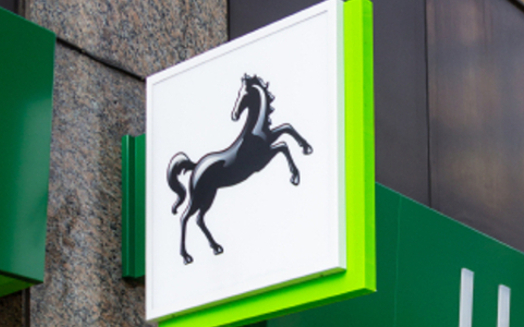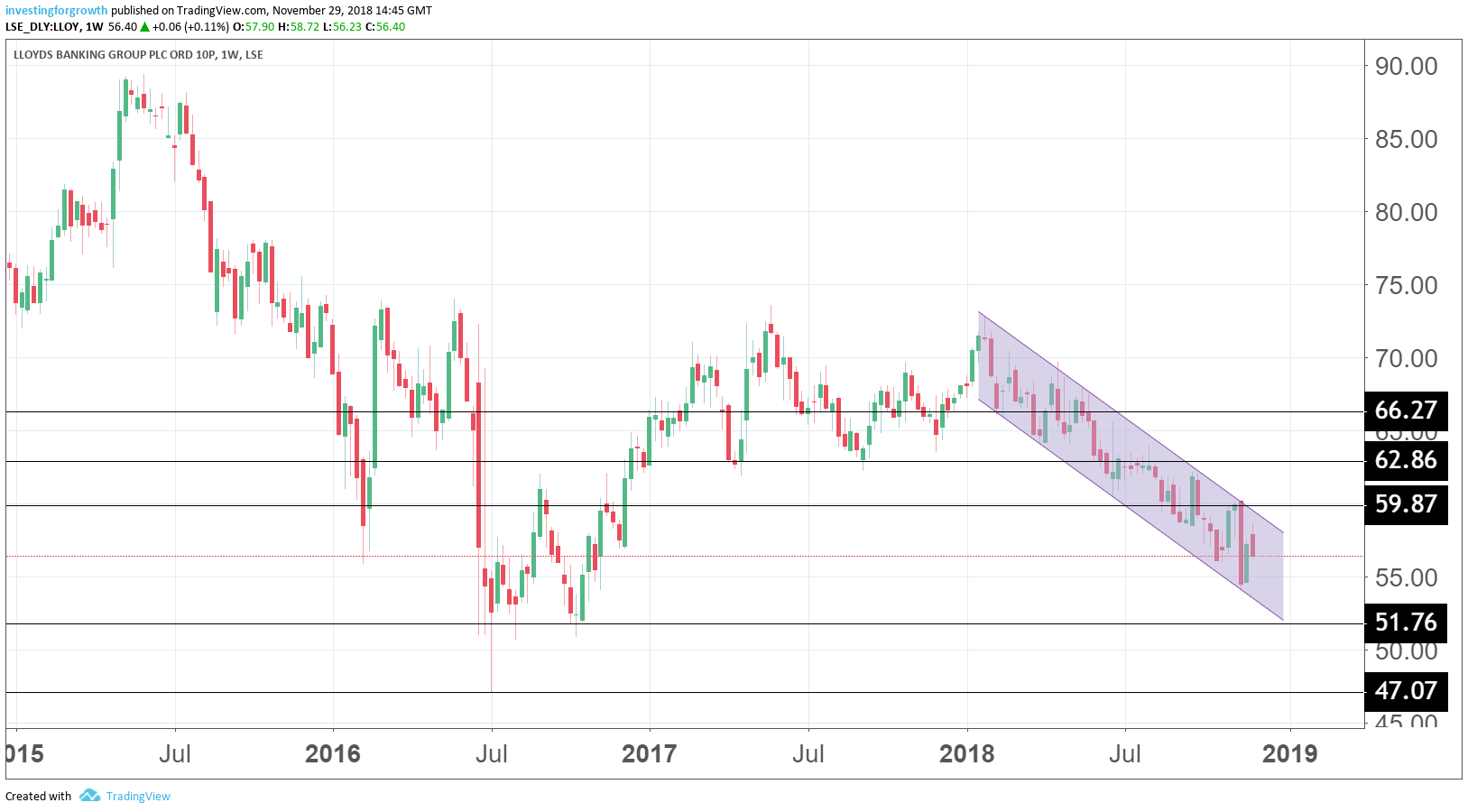Lloyds Bank shares: What's needed to drive material re-rating
29th November 2018 14:59
by Graeme Evans from interactive investor
Navigate the Brexit problem and UK banks could do very well indeed. Graeme Evans talks us through the latest stress test and which bank shares are a 'buy'.

The small matter of Brexit aside, Lloyds Banking Group and other UK lenders appear to be a significant step closer to a material re-rating of their shares.
While this may seem like fantasy given the current political turmoil, there's no getting away from the potential positives for banking investors should Britain actually manage to avoid a disorderly EU exit at the end of March.
That was underlined by the Bank of England last night when it revealed Britain's biggest banks could still the support economy through a global financial crisis.
The successful passing of the annual stress test by seven lenders means that banks including Lloyds have greater scope to increase dividends and buy-backs, rather than having to focus on shoring up capital buffers.
In isolation this news would have created a major boost for share prices. But Lloyds shares were flat and Barclays and Royal Bank of Scotland were only marginally higher today after Mark Carney's warning that a no-deal Brexit would leave consumers exposed to the worst financial crash since the 1930s.
UBS's banking analyst Jason Napier said the sector-wide pass was treated by the market as the avoidance of another negative catalyst, despite the modest valuation multiples of the stocks concerned.
Napier continues to have 'buy' recommendations on all three lenders, regardless of the Brexit uncertainty. He said today: "In the event that a Brexit transition is ultimately agreed — the path to which does look potentially bumpy — we'd expect to see these profitable, capital generative stocks re-rate materially".
UBS has price targets of 80p for Lloyds, 240p for Barclays and 300p for Royal Bank of Scotland.

Source: TradingView (*) Past performance is not a guide to future performance
Another key landmark for UK banks will come in the new year when the Bank of England publishes new capital requirements for the banking sector.
Napier added: "That, and hopes of clarity around the Brexit outcome, should allow banks to increase dividends and buybacks."
There has been speculation that Lloyds will have room to announce a £2 billion buyback, although analysts at Deutsche Bank think a figure closer to £1.5 billion is more likely. They also estimate that Barclays has room to complete a buy-back of around £1 billion during the course of 2019.
- Lloyds Bank shares: A second opinion
- Chart of the week: A big question for Lloyds Bank shareholders
- Chart of the week: Lloyds Bank share price target
Deutsche thinks that Standard Chartered has the capacity to follow suit, although it said that capital might be better served on growth opportunities as part of the Asian lender's recent turnaround drive.
According to Deutsche's figures, UK banks trade on a projected 2019 price/earnings multiple of 8.9x with a 5.2% dividend yield.
The stress test undertaken by the Bank of England involved a rise in the unemployment rate to 9.5%, alongside a one-third decline in residential property prices and an increase in interest rates to 4%. This was accompanied by a sharp fall in the value of the pound.
*Horizontal lines on charts represent levels of previous technical support and resistance.
These articles are provided for information purposes only. Occasionally, an opinion about whether to buy or sell a specific investment may be provided by third parties. The content is not intended to be a personal recommendation to buy or sell any financial instrument or product, or to adopt any investment strategy as it is not provided based on an assessment of your investing knowledge and experience, your financial situation or your investment objectives. The value of your investments, and the income derived from them, may go down as well as up. You may not get back all the money that you invest. The investments referred to in this article may not be suitable for all investors, and if in doubt, an investor should seek advice from a qualified investment adviser.
Full performance can be found on the company or index summary page on the interactive investor website. Simply click on the company's or index name highlighted in the article.